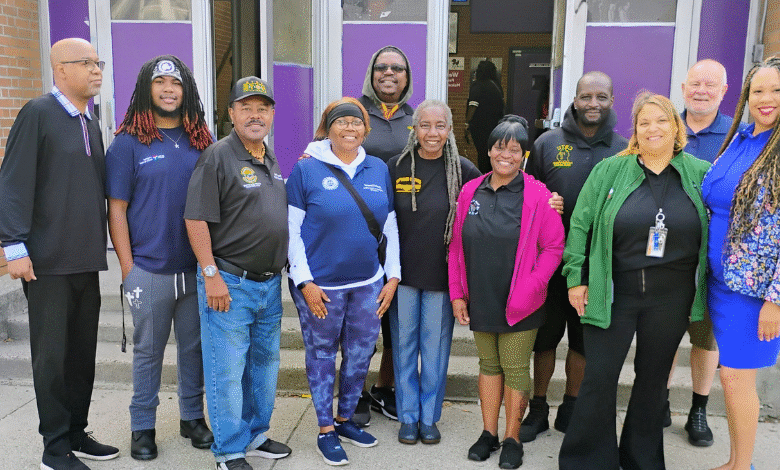https://cbtu.nationbuilder.com/

Every worker deserves to be heard. Every worker deserves a chance to build economic stability, to thrive, to bring their talents forward. When you dig into what helps people achieve that, you often end up back at the union movement. For Black workers in particular, having a strong voice inside organized labor has historic value. That’s where the Coalition of Black Trade Unionists (CBTU) comes in. I want to walk you through what CBTU is, why it’s important, how it operates, and how you or someone you know can participate. I’ll also draw in why I believe organizations like this still matter today, especially as the labor world shifts.
What is CBTU?
The Coalition of Black Trade Unionists (CBTU) was founded in 1972. From its earliest days, it set out to give Black union members — both active and retired — an independent voice within the broader labor movement.
Here’s what the organization stands for: CBTU is not a civil-rights group in the conventional sense, and it’s not a black separatist organization. Instead, it’s a voice of Black workers within the union movement, working to influence unions, labor policy, politics, education, and community development.
Today, CBTU’s membership spans dozens of international and national unions and includes chapters across the U.S. and into Canada.
In simpler terms: imagine you belong to a union and you’re a Black worker. You also want your issues — things like job access, fair wages, safety, community investment — to be front and center inside your union. CBTU offers a platform for that.
Read ALSO: https://extremelytechsite.com/data-recovery
Mission & Key Objectives
What is CBTU trying to achieve? Their mission statement gives insight.
Here are the major objectives, laid out in plain terms:
-
Improve economic opportunities for Black workers. That means job access, fair wages, investment in communities.
-
Increase Black and minority participation in unions. Because representation matters: when Black workers are part of decision-making, union outcomes are stronger for everyone.
-
Organize unorganized workers. There are many workers who are not yet unionized; CBTU wants to reach them, especially in Black communities.
-
Support education and youth training. The link between education, job readiness and employment is powerful; CBTU emphasizes this.
-
Engage politically and protect consumer rights. For example, helping voter registration, protecting social services, addressing inflation on food, energy, housing.
In my view, the mission speaks to both practical worker needs and broader social justice concerns. Because when you’re a Black worker in America, the challenge is not just wages and hours; it’s also historic structural inequality. So an organization that blends labor and community impact can fill a unique role.
Structure: Chapters, Regions and Programs
CBTU isn’t just one headquarters and a website—it works via a network of regions and chapters. That structure helps it stay connected to local concerns. For example: their “Regions/Chapters” page lists many regions covering states and even Ontario, Canada.
Let’s break it down:
-
Regions: These are geographic groupings (for example Region 1: Connecticut, New Jersey, New York, Massachusetts & Ontario).
-
Chapters: Local groups within regions (e.g., a New York City chapter).
-
Programs & Committees: These include special focus areas like the Under-40 Young Leaders Committee, Women’s Committee, Men’s Committee, Retirees, and toolkits.
For example the Under-40 Young Leaders Committee is designed to bring younger workers into leadership, to mentor them, to build capacity so the next generation carries labour activism forward.
From a first-person viewpoint: It’s like being part of a team where you’re in your local region but you’re also plugged into a national network. If you’re younger, you get special programs. If you’re part of a women’s union group, there’s a women’s committee. The structure offers multiple ways to plug in and make a difference.
Membership: Who, What, How
Who can join CBTU? According to their site: membership is voluntary and open to those who are active or retired members of bona fide unions.
What are the benefits of being a member? While CBTU does not list a full benefits catalogue in the pages I reviewed, you can infer from their mission and programs:
-
Access to networks of Black trade-unionists across the country
-
Education/training opportunities (especially for youth)
-
Voice in shaping labor policy and community engagement
-
Participation in regional and national events (like conventions)
-
Influence in civic and political efforts, e.g., voter registration, consumer protections
From my perspective: If you’re a Black union worker, being in CBTU could mean you’re not just part of your immediate union – you’re part of a national movement that connects to your identity and your community. That dual membership (your union + CBTU) could amplify your influence.
How to join? You’ll likely connect first with your local chapter or region. The “Regions/Chapters” page shows contact information for chapters. So step one: identify your region, reach out via the provided contact, inquire about membership process.
Impact in Action
What does CBTU actually do? Let’s look at concrete evidence.
One example: their mission statement highlights that Black union members earn on average 40 percent more than non-union Black workers. That statistic shows the value of union membership, and by extension, CBTU’s emphasis on gaining stronger union representation.
Another example: the 54th International Convention of CBTU, held May 20-26, 2025. These conventions are critical: they bring members together, set agendas, revise resolutions, share training.
Programs like the Under-40 committee, aimed at youth, show impact in leadership development.
In my own observations: being part of a national organization like CBTU means there’s potential not just for professional benefit (jobs, wages) but for community benefit (education, civic engagement). I’ve seen, through labour history, how local activism builds national change. CBTU links those layers.
Why It Matters Today
You might ask: with all the shifts in work (gig economy, remote work, automation), is a body like CBTU still relevant? I’d say yes, and here’s why:
-
Many Black workers still face higher unemployment rates, wage gaps, under-representation in leadership. CBTU’s mission addresses that explicitly.
-
Unions are adapting. But if unions do not include voices of under-represented workers, the adaptation may not reach all. CBTU provides that voice.
-
Community and labour issues overlap: job training, education, housing, consumer rights. CBTU’s scope is broader than just collective bargaining.
-
Youth and future workers: With younger generations entering the workforce, mentoring and leadership development (via Under-40 programs) gives the path forward.
-
Civic engagement matters: Voter registration, union voice in politics – all influence policy that affects workers’ lives.
From my perspective: if I were younger and entering a trade or union job, joining a group like CBTU would help me connect my personal career ambitions with larger community goals. It turns “just a job” into “part of change.” That’s powerful.
How to Get Involved
Here’s how you can step into CBTU or at least explore what they offer:
-
Locate your region/chapter. Use the Regions/Chapters page to find your state/province and local chapter.
-
Reach out. Contact the regional representative or chapter president listed.
-
Attend a meeting or event. The national convention is one, but local chapter meetings are more accessible and let you see how it works.
-
Explore programs. If you’re younger than 40, the Under-40 committee might be relevant. If you’re in a women’s union or men’s union context, check the respective committees.
-
Membership. If you’re active or retired in a bona fide union, inquire about membership. The website says membership is voluntary and open to such individuals.
-
Take part in actions. Whether it’s voter registration, education/training events, or campaigns for economic justice, being active is key.
A little personal advice: When you first join, start local. Get to know your chapter and people. Then watch how the national structure works. That way you build comfort and connection.
Challenges & Future Outlook
No organization is without challenges. For CBTU, some of the hurdles and future directions might include:
-
Changing nature of work. Gig jobs, contract work, remote roles – unions historically focused on traditional employment. CBTU needs to engage those shifts.
-
Maintaining youth engagement. Programs like Under-40 help, but keeping younger members involved long-term is a challenge.
-
Representation inside unions. Being part of unions is great, but making sure Black workers are genuinely represented in union leadership remains work.
-
Resource allocation and growth. Expanding chapters, securing funding, staying relevant to members who have many demands on their time.
-
Political environment. Labor rights, economic policy, social justice: these change with elections and shifts in public opinion. CBTU’s impact depends partly on environment.
Despite these, the future is promising: With digital tools, CBTU can reach more people; with youth leadership, they can adapt; with community-based networking, they can deepen impact. As I look ahead, I see CBTU positioned to not just respond but lead in labor-community intersection spaces.
Conclusion
Let’s wrap this up. The Coalition of Black Trade Unionists is more than a footnote in labor history. It’s a living, breathing network of Black workers, union members, retirees, youth leaders and chapters working for economic, social and political justice. If you’re a Black worker in a union, or you care about labor equity, CBTU deserves attention. It offers connection, voice and purpose.
If I had to highlight one thing: joining a movement like this means you move from being “just someone who has a job” to being “someone who helps shape work, community and opportunity.” And that shift makes all the difference.
FAQ
Q: What is CBTU?
A: The Coalition of Black Trade Unionists is an organization founded in 1972 that brings together Black workers in trade unions to advocate for economic, social and political justice.
Q: Who can join CBTU?
A: Active or retired members of bona fide unions are eligible. Membership is voluntary.
Q: What are the benefits of membership?
A: Membership offers access to a network of Black union members and chapters, leadership and training programs (especially for younger workers), participation in civic and labor campaigns, and engagement in broader community and worker justice initiatives.
Q: How is CBTU organized?
A: It has regional divisions across the U.S. (and into Canada in Ontario) and numerous chapters. It also runs committees/programs for special focus areas (Under-40 leaders, Women’s Committee, etc.).
Q: Why does CBTU matter now?
A: Because Black workers still face wage disparities, under-representation, and labor challenges in modern work environments. CBTU offers a dedicated voice and network to address those challenges and shape the future of work.



